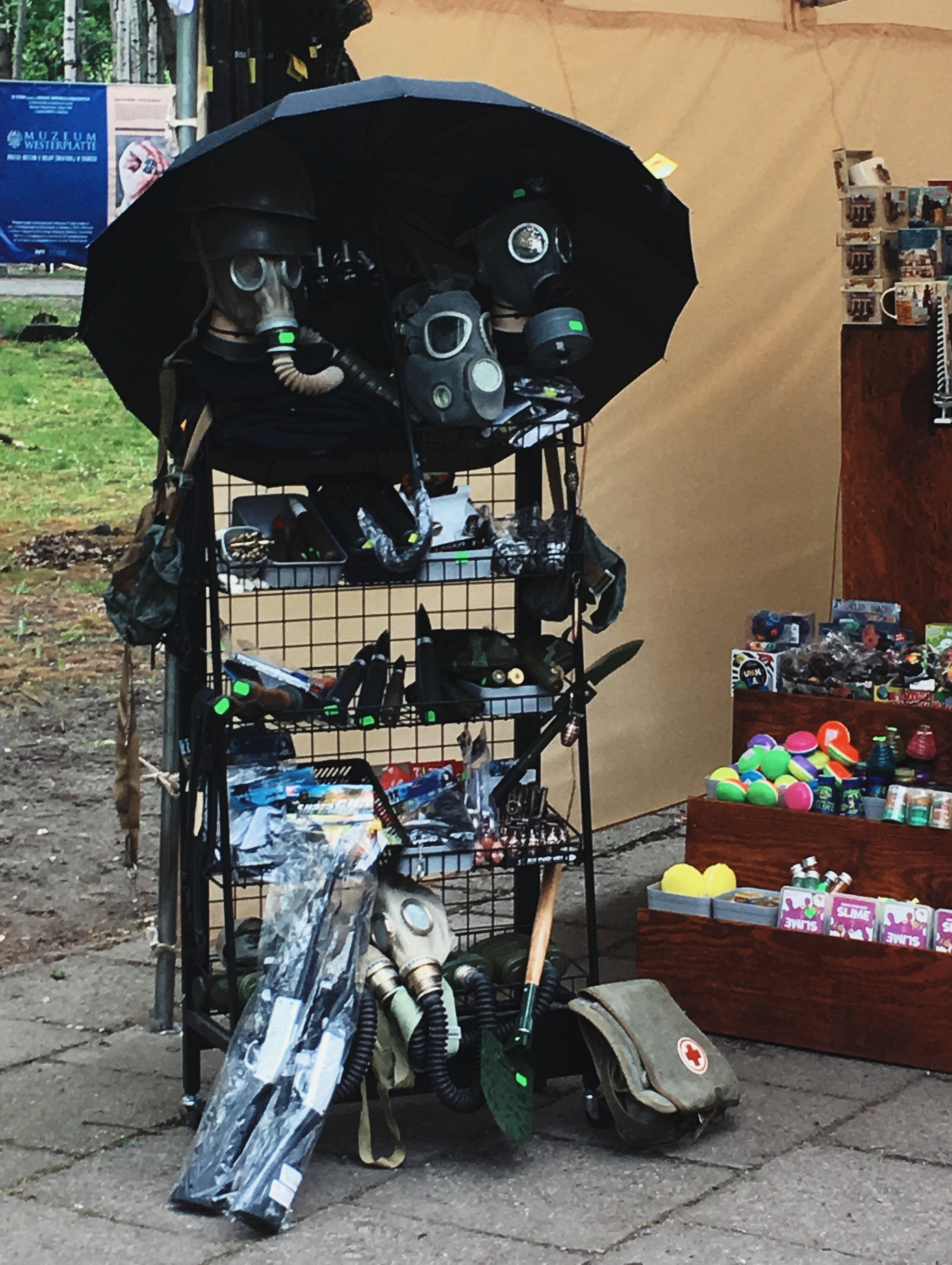As we traveled from the sunny streets of Warsaw to the rainy shores of Gdańsk, we passed fields of yellow in the Polish countryside. At arrival, we are greeted by our newfound sisterhood; the university of Warsaw students who immediately took us in as their own. We are offered bites of burgers and handfuls of fries on the bus, as our poor tour guide tries desperately to gain the attention of our reuniting groups. Our first stop is the Westerplatte, a peninsula once used as a harbor and site of the Polish Military Transit Depot. Walking through the ruins of officer buildings and train stations, our tour guide shares with us that there is a great possibility that the destroyed stations will be rebuilt. As we left the site, I spotted a tent of souvenirs being sold. Among the mugs and postcards stood a display of gas masks for sale, and I felt my heart drop. The morality of tourism built around tragedy has been a central part of this trip, and until this moment I have understood that it is a necessity. But this made me sick to my stomach. A million thoughts ran through my head. Who would even buy this trash? Why is this man selling it in the first place? Why isn’t anyone else noticing? I looked to the university of Warsaw students, who hadn’t batted at eye at the display. The Holocaust has been central to their education and daily life, as one of the students who expressed that they have been learning about it since elementary school. A display that may shock me is a typical sight for them, attributed to their overexposure to this tragedy.
Next, we head to the European Solidarity Museum and meet with the museum director. He expresses his sadness that the current Polish government pulled nearly 3 million zlotys of funding from the museum, as it tells a different narrative of the violent, nationalistic uprisings during World War II. The museum celebrates peaceful protest and standing in arms with your brethren against injustice, and the solidarity movement is a significant part of Polish history. So why pull the funding? Why are battlegrounds being rebuilt, while the celebration of peace is underfunded? I began to understand more and more the complexity of the current Polish identity. This entire country is characterized by a tragedy they themselves did not commit, and desperately want to prove to the world that they are far more than one event in history. Any example of rebellion or victory in World War II is clung to, as it is proof that Poland fought valiantly for good. Because these examples are from World War II, they are violent in nature. The irony of the country commemorating violence when trying to distinguish from their tragic history is palpable. You would think they would want to push the narrative that the solidarity movement portrays, that Poland is much more than the Holocaust and has fought peacefully for justice. Blood, war, and sacrifice are what built national identity, and when removing funding from peaceful commemorative projects to violent ones, the politicians are not only honoring the dead, but promoting their own nationalistic agenda. I have no issues with commemoration of war or soldiers, but I do have an issue when death and sacrifice becomes a weapon of selfishness.
